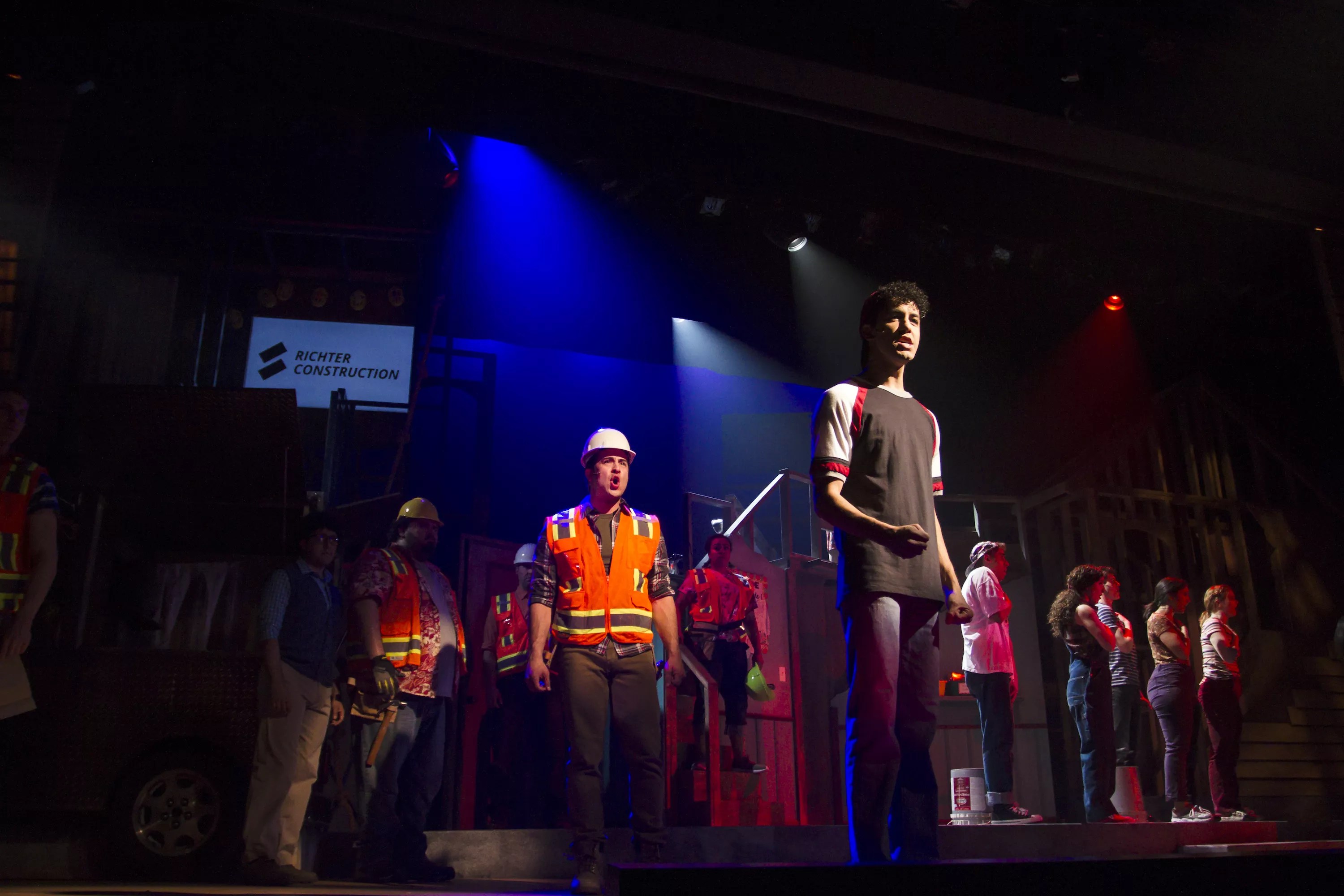
Reg Madison Photography

Audio By Carbonatix
Arizona artists were exploring immigrant rights long before the Supreme Court took up Obama’s Deferred Action for Childhood Arrivals policy, better known as DACA. Now, a new musical created in Phoenix is taking center stage as the nation awaits the high court’s ruling.
Recently, Phoenix Theatre Company premiered a new work called ¡Americano!. It’s based on the life of a Dreamer named Tony brought to the U.S. as a child, who discovers he’s not a citizen while trying to join the military.
The troupe has recorded a concept CD, and filled the lobby with musical-related merchandise – including T-shirts with ¡Americano! catchphrases from “Pave the Way” to “Voice of the Voiceless.”
¡Americano! is an ambitious project. The company hopes to take the show to Broadway, where the hit musical Hamilton has been highlighting the immigrant roots of Alexander Hamilton since 2015. But to some, ¡Americano! also raises questions about who should be telling Dreamers’ stories.
“It’s a brave attempt to do the storytelling,” says Ricky Araiza. “But I have some questions about the lens it’s written through.” Araiza heads Teatro Bravo, a theater company based in Phoenix that focuses on Latinx and Chicanx voices.
“There’s a lot of representation on stage and in the creative team,” he says of the musical’s diversity. “But it was written through a white lens.”
Michael Barnard and Jonathan Rosenberg wrote the book. (That’s theater lingo for parts of a musical that get spoken rather than sung, by the way.) They co-wrote the lyrics with Carrie Rodriguez, a singer and songwriter based in Austin, Texas.
For Araiza, it’s part of a larger phenomenon happening in literature, theater, and other creative fields. “We still have issues of power and representation,” he says. “Some of these stories are meant for liberal white audiences.”
Older white patrons (myself included) filled out most of the audience during last Wednesday night’s performance. It’s a fact that amplifies growing concerns that stories shared by people of color are too often viewed through the white gaze.
¡Americano! stands in stark contrast to several works by local creatives who explore immigration rights and dreamer experiences, including James Garcia’s play called Dream Act, which his New Carpa Theater Company performed back in 2008.
Recently, filmmaker Pita Juarez premiered a new short film called La Morena, which profiles a Phoenix artist who paints murals depicting immigrants, Dreamers, and refugees. The screening drew a far more diverse crowd than the ¡Americano! performance I attended just days before.

Scene from Phoenix Theatre’s
Reg Madison Photography
Of course, creatives of color long have devised work along the U.S.-Mexico border.
Their work isn’t happening on a grand stage, but that doesn’t diminish its significance. Instead, it amplifies its authenticity and complexity, while elevating key questions about voice in an age saturated with storytelling.
“The big question is why certain stories are spotlighted,” says Araiza. “That’s the conversation we all need to be having.”
Although ¡Americano! was inspired by the lived experience of a Phoenix Dreamer, its tone minimizes the struggles of dreamers facing catastrophic consequences if DACA gets struck down by the Supreme Court.
Instead, it pushes a feel-good “we’re all in this together” narrative wrapped in an American flag, even as a whole host of government policies threaten the lives and well-being of immigrants and refugees.
¡Americano! is scheduled through Sunday, February 23 at Phoenix Theatre. Ticket prices vary. Visit phoenixtheatre.com.